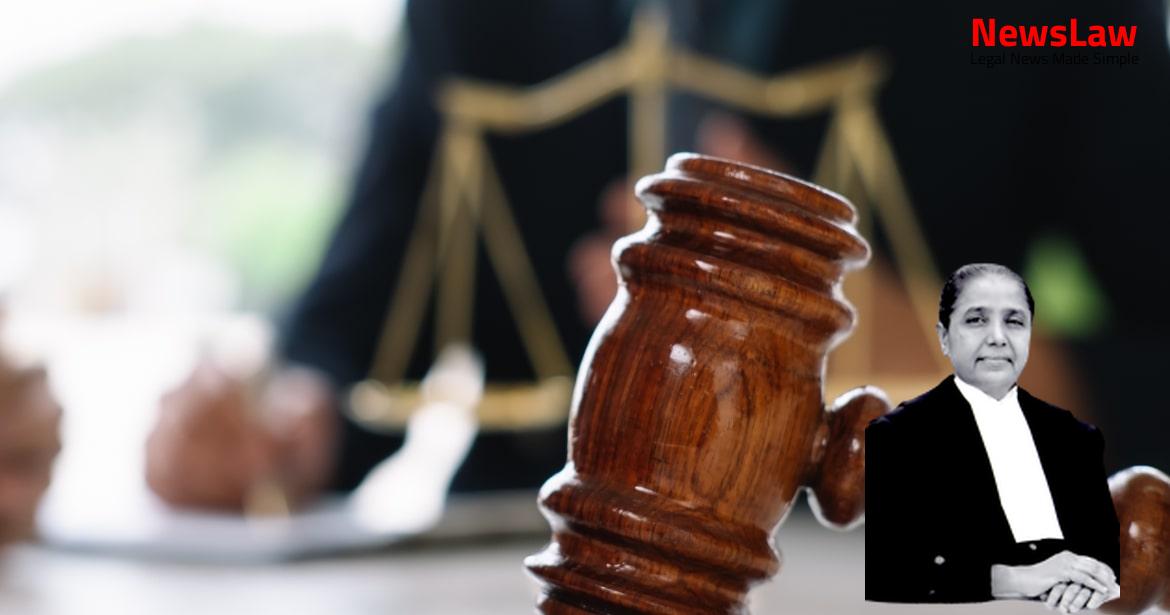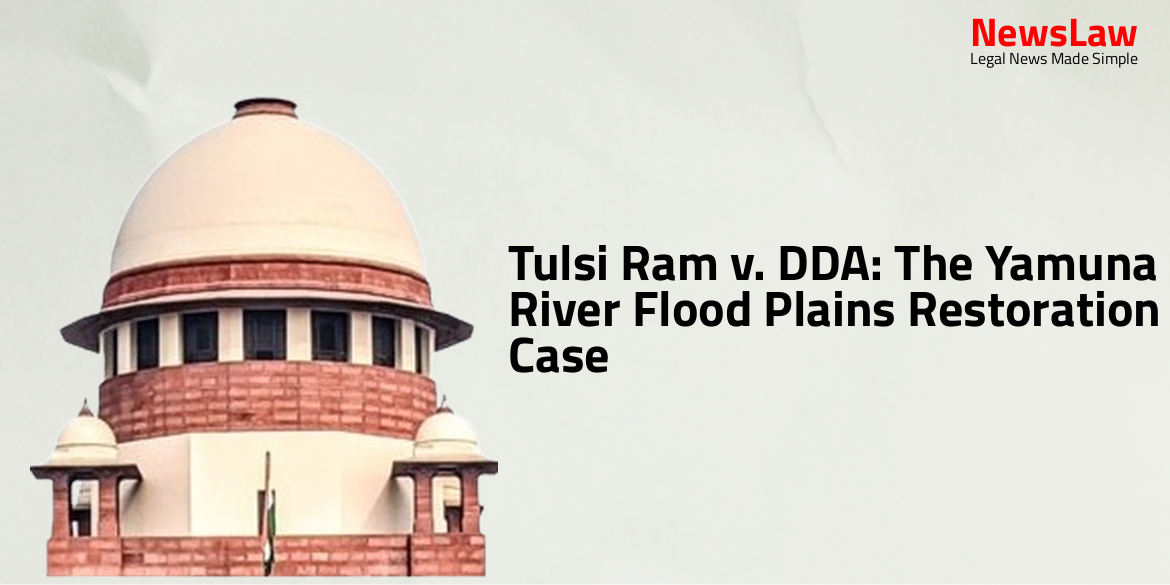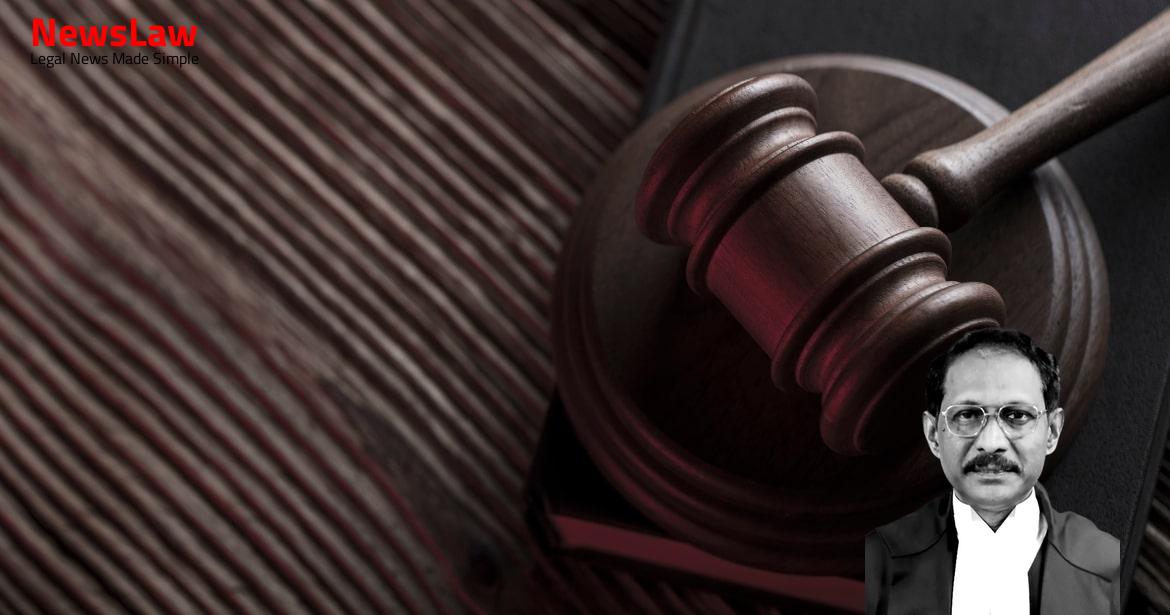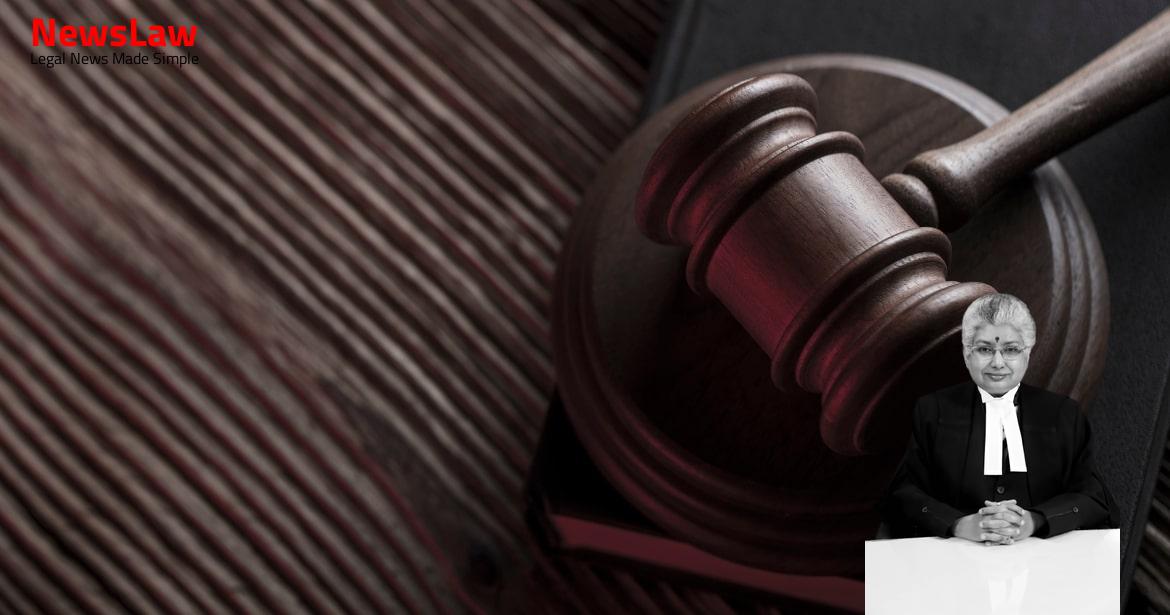Delve into the detailed legal analysis conducted by the court regarding the revision of pay scales for government employees in a recent judgment. By examining previous precedents and recommendations, the court provided substantial insights into the rationale behind setting a specific date for the implementation of pay scale amendments. This analysis highlights the intricate legal deliberations involved in such cases and the significance of precedents in court decisions.
Facts
- The respondent retired on 31.01.1997 in the pay scale of Rs.3700-5000 as per the Fourth Pay Commission Report.
- The Fifth Pay Commission Report recommended the pay scale for the post of Joint Director, Prosecution to be revised to Rs.12000-16500.
- A Committee under the Chairmanship of the Chief Secretary was constituted to consider representations and objections regarding pay scale amendments after the Fifth Pay Commission Report.
- The respondent submitted a representation in 2011 seeking the benefit of a Government order dated 02.02.2007 to revise his pension with effect from 01.01.1996.
- Director, Pension, Uttar Pradesh informed the respondent in 2012 that he was not entitled to a revised pension as he had already retired in 1997.
- The respondent filed a writ petition in the High Court seeking revision of his pension based on the Fifth Pay Commission Report from 01.01.1996.
- The Committee recommended the pay scale of various Prosecution cadre categories to be upgraded based on CBI Organisation posts, effective from 01.04.2001.
- State Government accepted the recommendations of the Fifth Pay Commission and decided to revise pay scales from 01.01.1996.
- The respondent was extended the benefits of the Fifth Pay Commission Report and his pension was revised accordingly.
- The Government accepted the Committee’s recommendations to amend the pay scale of the Joint Director, Prosecution to Rs.14330-18500 from 01.04.2001.
- The High Court allowed the writ petition based on two earlier judgments of the High Court.
- The judgments referred to were State of U.P. and others vs Anand Kumar Mishra and others, and State of Uttar Pradesh and others vs Ghanshayam Singh and another.
- The High Court held that the respondent’s case was covered by the judgment in State of U.P. and others vs Anand Kumar Mishra and others, granting the respondent the benefit of an amended pay scale from 01.01.1996.
- The State of U.P. and others filed an appeal against the High Court’s judgment.
- An earlier Division Bench judgment in Sudhir Kumar Gupta vs State of U.P. and others held that the benefit of a Government order dated 02.02.2007 from 01.01.1996 could not be extended to Joint Directors (Prosecution) who retired before 01.11.1999.
Also Read: Interpretation of Lease Agreement and Compulsory Registration
Arguments
- Date of implementation for the benefit was fixed as 01.04.2001 in the Prosecution Branch of the State.
- Pay scales were adjusted based on the analogy of the CBI organization.
- State Government decision to amend pay scales followed Committee recommendations.
- Recommendation for higher pay scale for Joint Director based on CBI organization analogy.
- Reference made to the Purshottam Lal case by Shri Misra.
- Disagreement on proper fixing of pay scale from respondent’s perspective.
- Anomalies Committee recommended revision of pay scale to Rs. 14300 to 18500 from 01.01.1996.
- Contention on lack of error in pay scale granted based on Fifth Pay Commission report.
- Rational basis for fixing the date of 01.04.2001 challenged by respondent.
- High Court’s reliance on previous judgments not applicable to the case of the respondent.
- Submission refuted by the respondent’s counsel, Shri P.N. Misra.
- Two Division Bench judgments of the High Court considered applicable by the respondent.
- Argument made that it was the Government’s responsibility to accept Pay Commission recommendations and decide on the inclusion of employee categories in terms of reference.
Also Read: Enhancing Compensation and Modifying Sentences: A Legal Analysis
Analysis
- The Pay Commission has classified all individuals in the Civil Services of the Central Government or being paid from the Consolidated Fund of India as Central Government employees.
- A recommendation was made to upgrade the pay scales of the prosecution cadre based on the analogy of existing posts in the CBI organization of the Center from 01.04.2001.
- The High Court allowed the writ petition based on previous judgments, despite not providing reasoning for the cut-off date of 01.04.2001.
- The representation of the Prosecution Wing was accepted to extend benefits similar to those of the CBI organization of the Center.
- The Government order dated 02.02.2007 detailed the revised pay scales from 01.01.1996 and amendment of pay scales from 01.04.2001.
- A conscious decision was made to amend the pay scale for the post of Joint Director, Prosecution on 01.04.2001, following the CBI organization’s analogy.
- The Court considered the case where benefits were not extended to petitioners under the Second Pay Commission despite similar sister institutions receiving benefits.
- The fixation of the cut-off date of 01.04.2001 for the amendment of the pay scale was ruled as rational and not arbitrary.
- The revision of the pay scale for the Scientific Staff of the Forest Research Institute was implemented at different dates, leading to protests and legal actions.
- Arguments against implementing recommendations for specific categories of government employees were not accepted by the Court.
- The respondent was informed that he was not entitled to the benefit of the pay scale amendment as he had already retired in 1997.
- The judgment of the High Court is deemed unsustainable and has been overturned.
Also Read: Transfer of Writ Petitions for Chartered Accountants’ Tax Audit Guidelines
Decision
- The appeal is allowed
- The decision of the lower court is overturned
- The appellant’s arguments are considered valid
- The appellant’s request is granted
Case Title: THE STATE OF UTTAR PRADESH Vs. VIJAY SHANKAR DUBEY (2020 INSC 317)
Case Number: C.A. No.-001757-001757 / 2020



